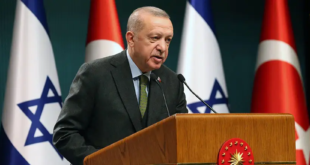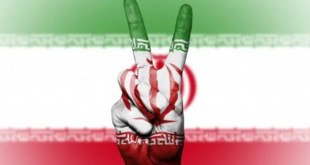Major powers failed to settle all their differences over a second UN sanctions resolution against Iran for its nuclear work but remain committed to passing one soon, the United States said. “There is still some work to be done on a few outstanding issues, but all parties remain committed to a second resolution in the near future,” State Department spokesman Kurtis Cooper said in a statement issued after the five permanent members of the UN Security Council and Germany held a conference call to discuss a new UN Security Council resolution against Iran.
The United States and leading European countries suspect Iran is seeking to build nuclear weapons under the cover of a civilian atomic program. Tehran denies the charge and says its program is merely aimed at generating electricity.
The new measures under discussion are a follow-up to a Security Council resolution passed on December 23rd last that imposed trade sanctions on sensitive nuclear materials and technology as well as other penalties after Iran refused to suspend uranium enrichment. The sanctions would be suspended if Iran complied with the UN – read it as US – demands.
The State Department put a positive gloss yesterday’s discussions but they appeared to have fallen short of US hopes that the group – Britain, China, France, Russia and the United States as well as Germany – would be able to agree on the elements of a resolution during the conference call.
“They had a good discussion in keeping with the positive atmosphere of their conversations last week,” Mr. Cooper said in a brief written statement.
“Discussions will now move to New York, where our United Nations permanent representatives (ambassadors) will take up work on the issue.”
US and European diplomats have said the new sanctions are expected to include a mandatory travel ban on Iranian officials involved in the nuclear program and an expansion of the list of banned nuclear material and technology Iran may import and export.
Also under consideration is enlarging the list of Iranian officials whose assets were frozen in the December resolution. But envoys said proposals for a total arms embargo would be dropped because of Russian objections as would a ban on visas for students studying nuclear technology abroad.
Negotiators have also discussed restricting export credits provided by governments to companies doing business in Iran. Washington has pushed for Europe to end such credits.
The United States has made no secret of its desire to get a second resolution quickly to keep up momentum in its diplomatic effort to persuade Iran to suspend its nuclear enrichment work, which can for now provide fuel only for power plants.
When enriched to a low level, uranium can only be used as fuel for power plants, while manufacture of atomic bombs requires highly enriched uranium.
Iran is now equipped with the technical know-how to enrich uranium to a low level (3.5 to 5 percent).
 Eurasia Press & News
Eurasia Press & News



